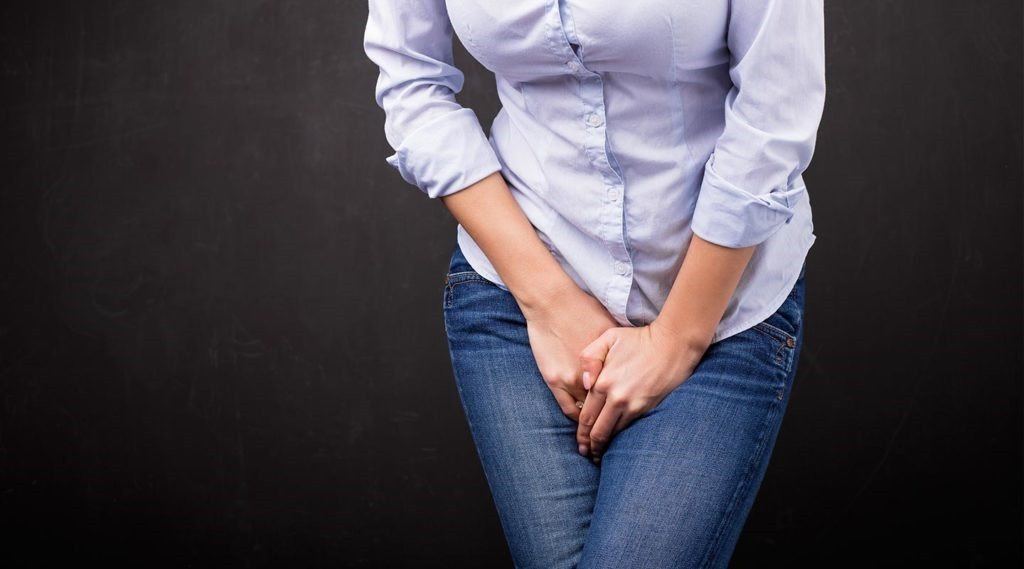I think it’s safe to say that we’ve all had occasions where we needed to pee really badly, and were so relieved when we finally made it to a bathroom.
Well, for someone with urinary incontinence, that can be a regular occurrence!
Urinary incontinence is a condition characterized by unintentionally releasing urine. It affects about 12 million Americans and is far more common in women than men. It can cause embarrassment and stress, especially when you are constantly worrying about where a bathroom is everywhere you go.
The different types
Although most people think of incontinence as leaking urine when you cough or sneeze, it’s a bit more complex than that, and there are actually four different types:
1- Stress incontinence: This occurs when urine leaks during exercise, coughing, sneezing, laughing or lifting heavy objects.
2- Urge incontinence: This is when someone can’t hold their urine long enough to get to a bathroom and feels the need to go RIGHT NOW.
3- Overflow incontinence: This occurs when your bladder is always full and small amounts of urine leak from it.
4- Functional incontinence: This is when someone may have normal bladder control, but their mobility is limited (such as due to an injury or stroke) and they can’t always get to a bathroom quickly enough.
Stress incontinence is far and away the most common type of incontinence, followed by urge incontinence.
Tell me why
Stress incontinence usually occurs when a woman’s pelvic muscles are weakened by childbirth or abdominal surgery. It is also frequently seen after the onset of menopause.
Urge incontinence is the result of involuntary contraction of the bladder muscles more frequently than normal. Although one clear-cut cause has not been established, it has been associated with certain drug side effects, nerve damage, a history of bladder or urinary tract infections (UTI), bladder cancer, and in men, prostate enlargement (benign prostatic hyperplasia or BPH).
Ways you can help curb the leak and slow the flow
If you suffer from incontinence, first and foremost, see a doctor to rule out an underlying condition that might require medical attention.
In addition, there are natural ways you can help ease the symptoms of incontinence, depending on what factors may be involved.
Here are some measures you can try:
Kegel exercises. These involve squeezing and releasing the muscles in your vaginal area to help strengthen the muscles surrounding your bladder. Hold the tension for a count of 10, then release. Aim to do 20 Kegel exercises, 3 times a day.
Lose weight. Extra weight, especially in the belly area, can put additional pressure on the bladder. Sound digestion is crucial to weight loss, so make sure you eat simple meals (avoiding combining proteins and starches together in the same meal) and support your body’s digestive process with an enzyme formula like Digestizol Max.
Acupuncture. Acupuncture may help reduce incontinence by strengthening the urinary system as well as correcting imbalance in the kidneys.
Quit smoking. Smoking can irritate your bladder and increase your risk of bladder cancer. Smoking can also cause coughing spasms that worsen problems with stress incontinence.
Try apple cider vinegar. Apple cider vinegar can help fight bladder infections, plus many people have sworn by it for weight loss. Add 1 teaspoon of raw, unfiltered apple cider vinegar to a glass of water and twice a day. Be sure to look for organic varieties that contain “the mother.”
Avoid douches and feminine deodorants. These can be irritating to the bladder.
Limit caffeine. Caffeine is a diuretic that can contribute to bladder irritation and stimulate muscle contractions, which can both cause incontinence.
Get enough vitamin D. Studies have shown that women who had higher levels of vitamin D in their blood had a lower risk of developing urinary incontinence problems. To make sure you heave healthful levels of this essential nutrient, try to get in the sun unprotected for about 20 minutes each day and supplement with a top-quality formula like Optimum DK Formula with FruiteX-B.
Try yoga. Yoga can help to tighten up the muscles that control the urethral sphincter and provide similar benefits to performing Kegel exercises.
Do what you can to help make incontinence a thing of the past for you!
To your health,
Sherry Brescia











